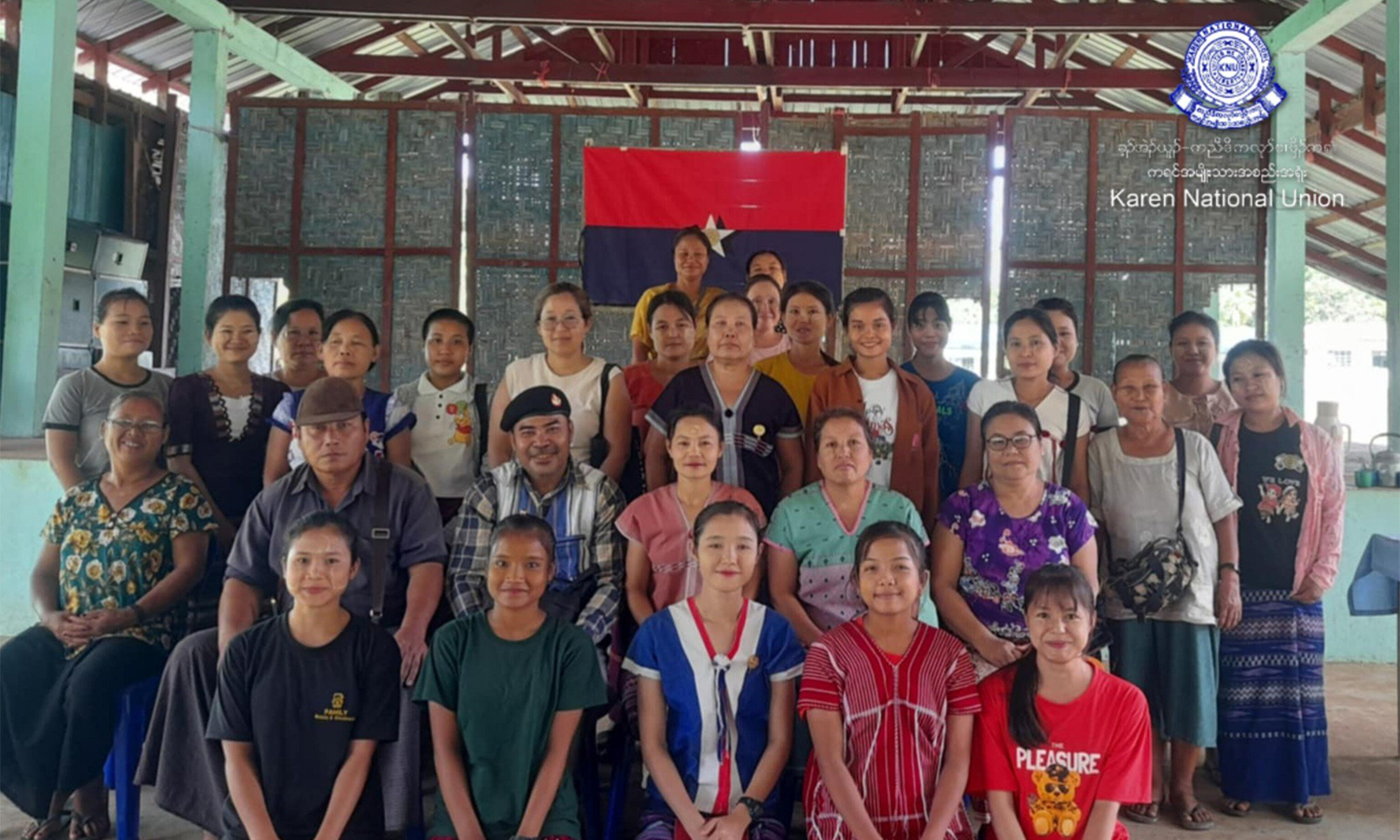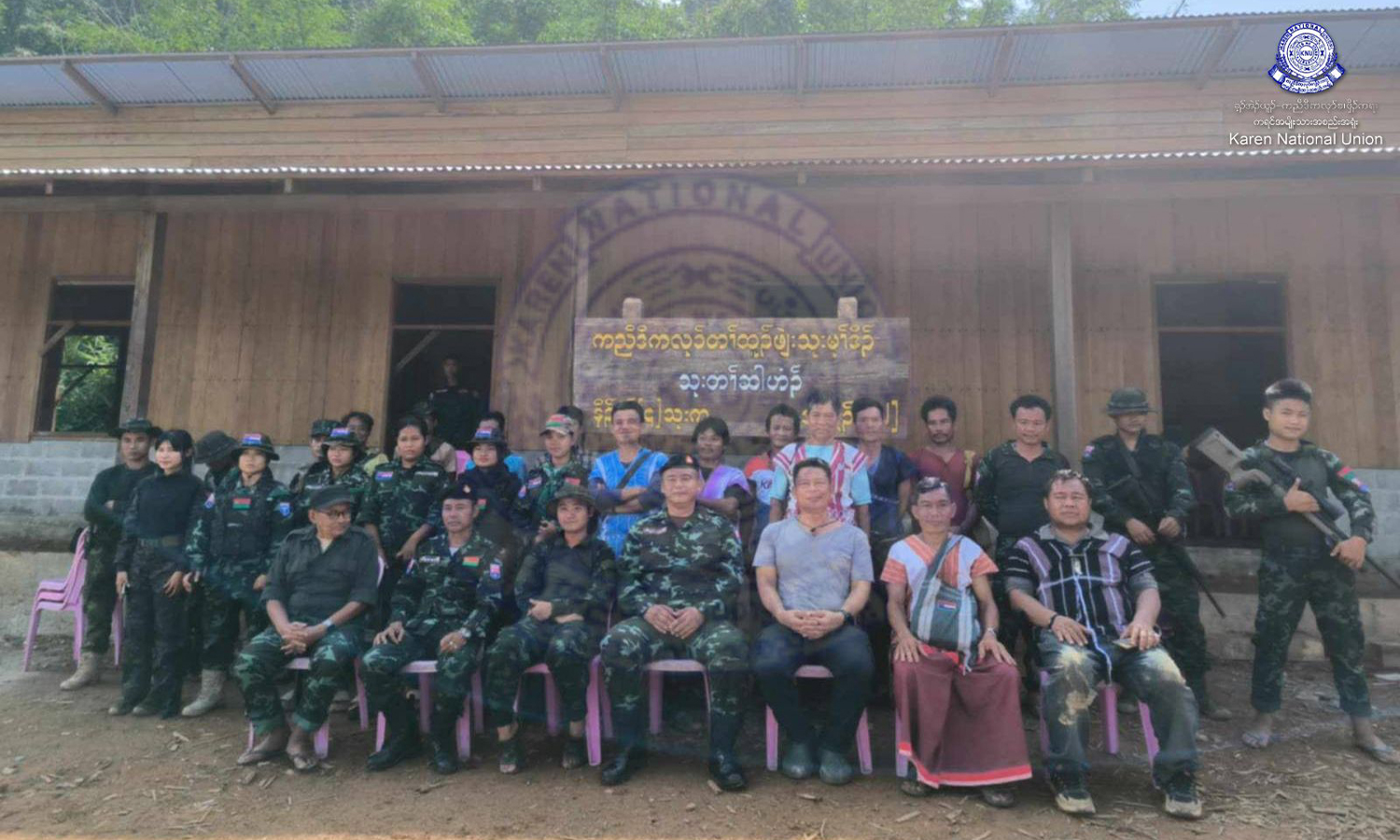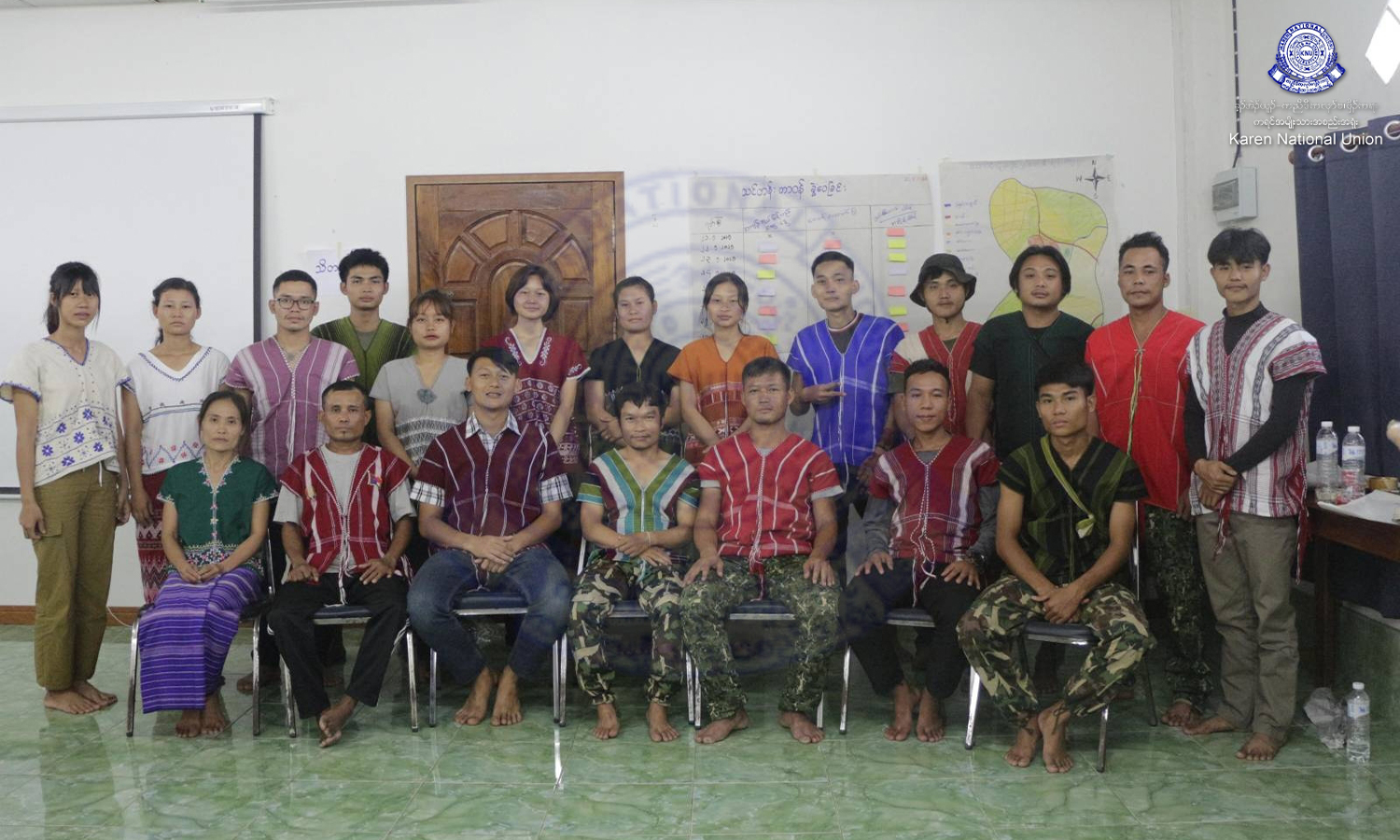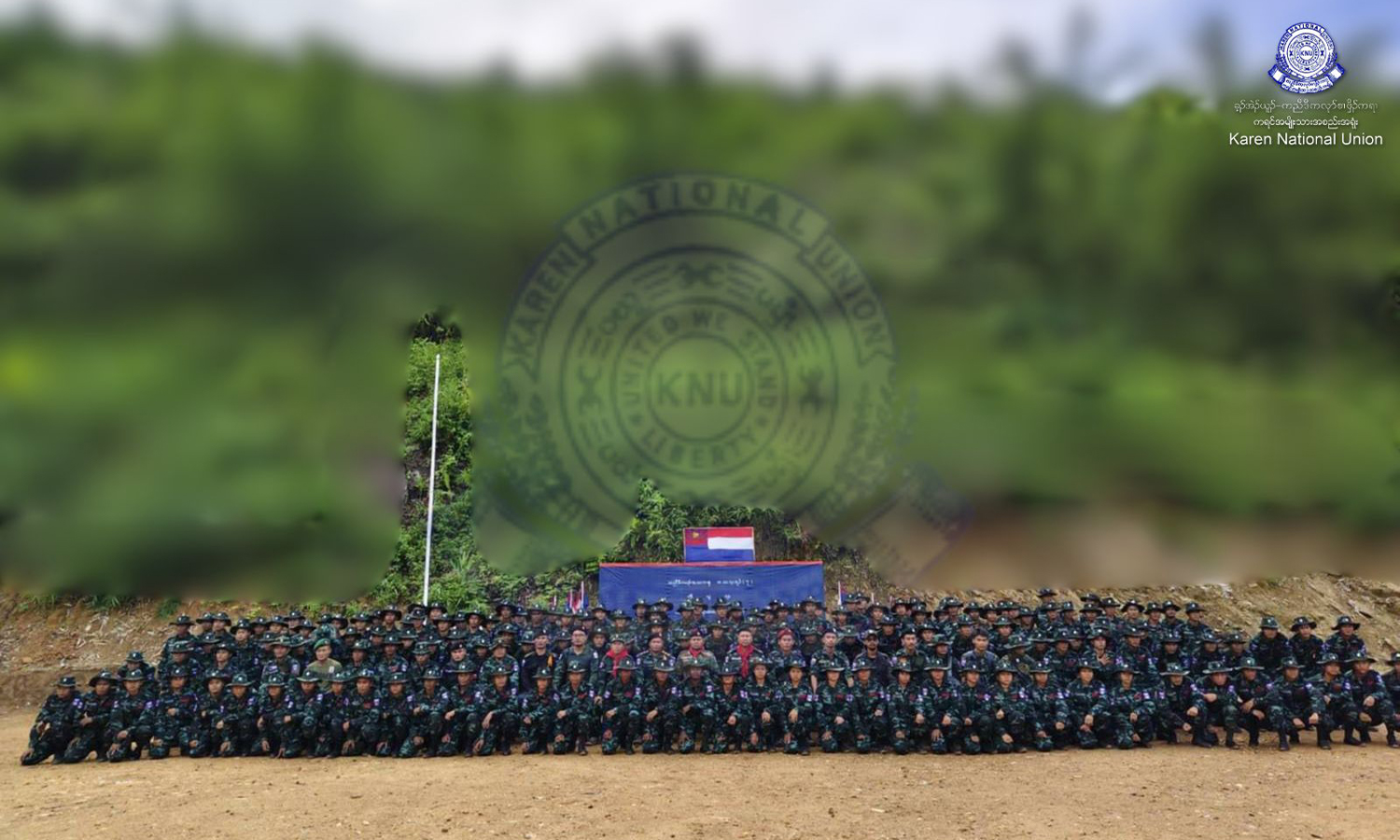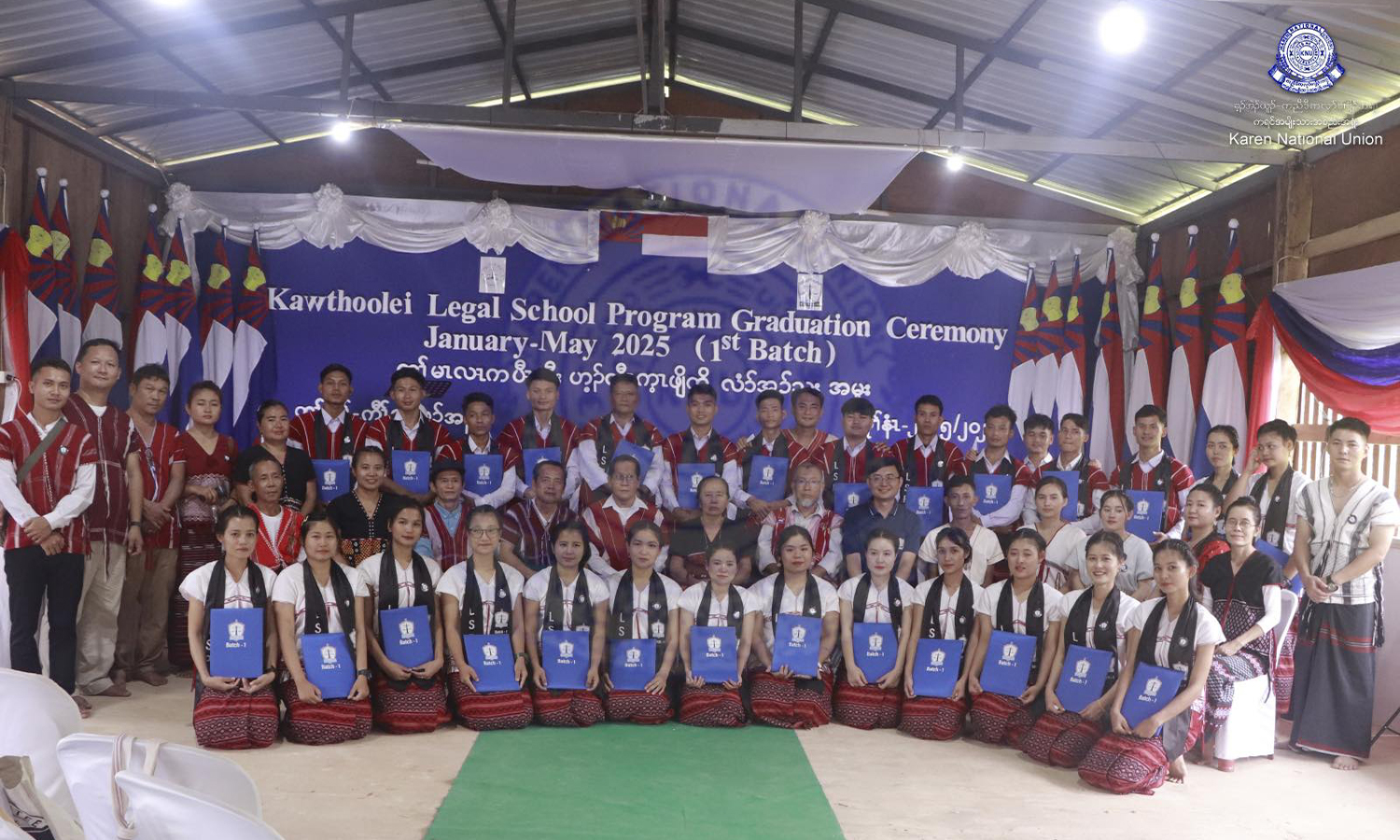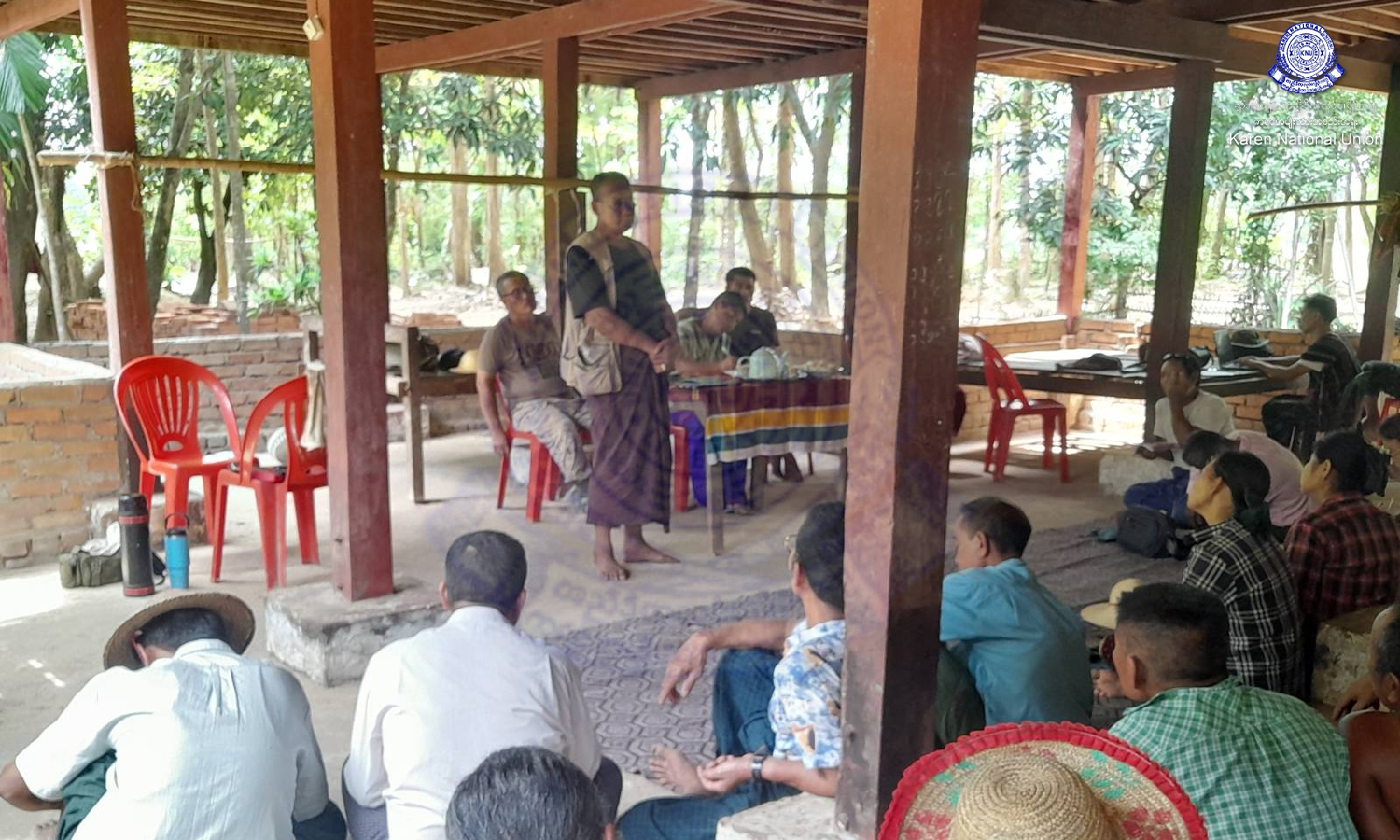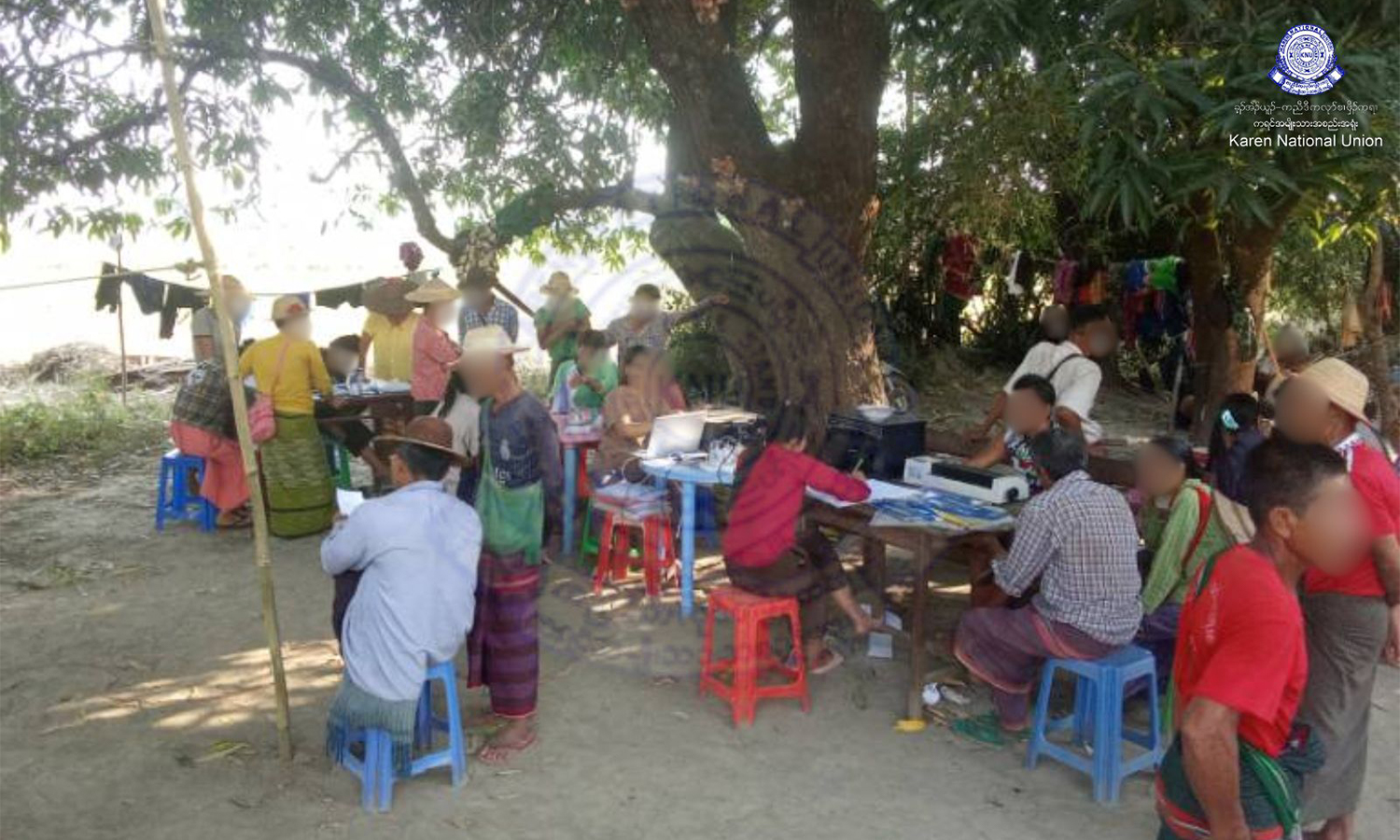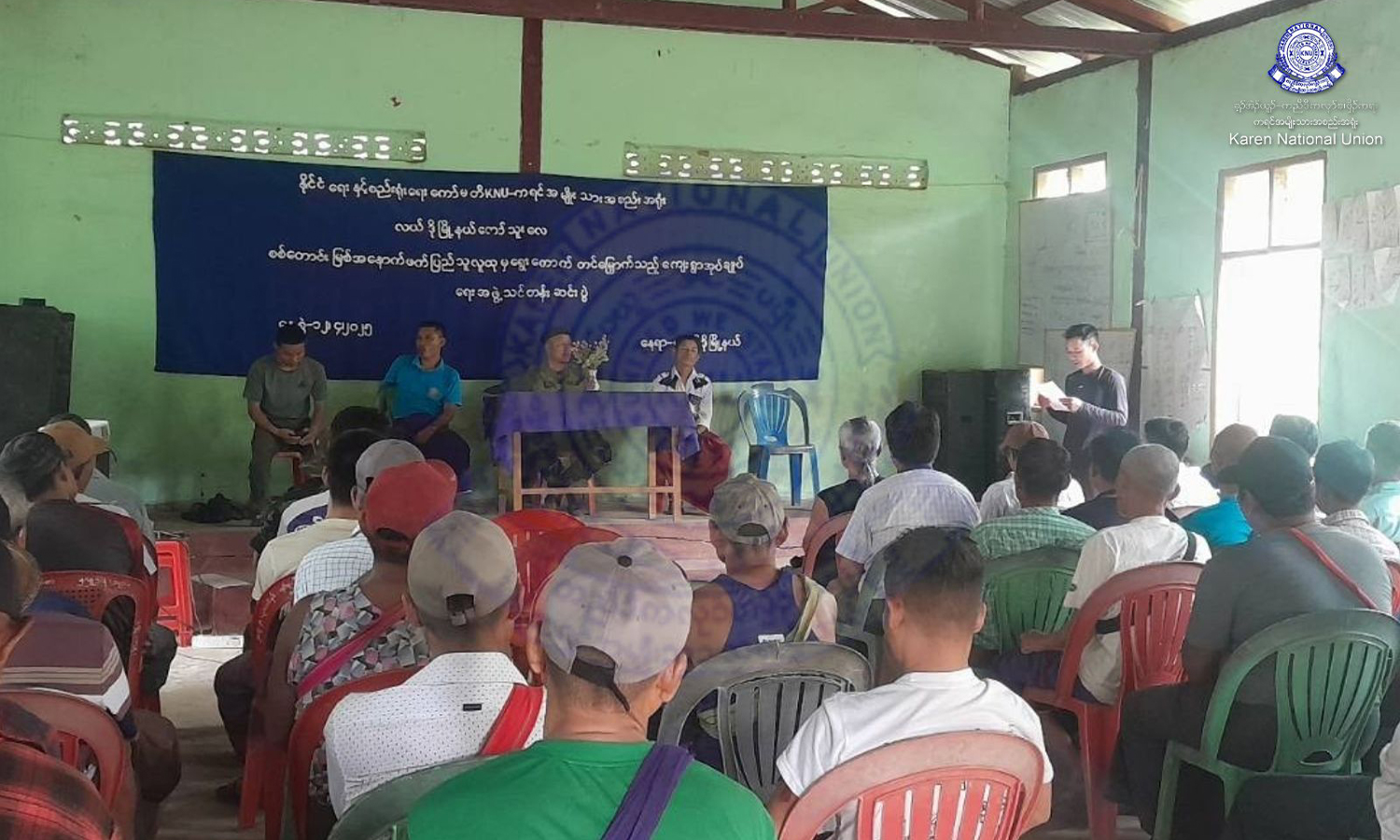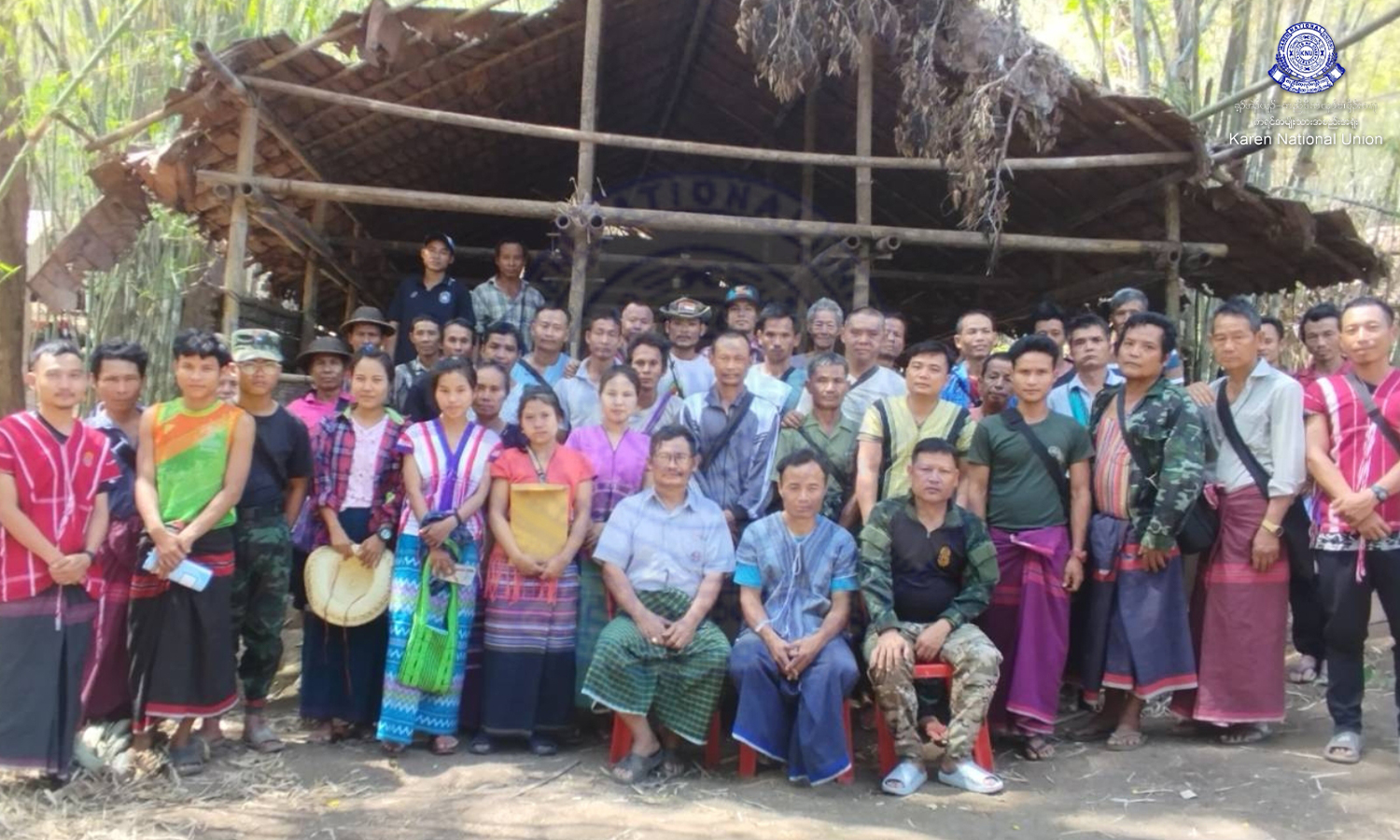 ငြိမ်းချမ်းရေးဖြစ်စဉ်
ငြိမ်းချမ်းရေးဖြစ်စဉ်
KNU and Ethnic Leaders Meet with UPWC, Naypyitaw
August 2013: A joint ethnic team composing of KNU and RCSS leaders, including other ethnic leaders met with Vice President and Chairperson of Union Peacemaking Working Committee (UPWC) Dr Sai Mawk Kham. UPWC Vice-Chairperson and Deputy Army Commander in Chief Vice Senior, General Soe Win; UPWC Vice-Chairperson and Head of Lower House National Race Affairs and Internal Peacemaking Committee, U Thein Zaw together with his (16) committee members and UPWC Vice- Chairperson and Chief Peace Negotiator U Aung Min and his team members of 9 union ministers.
Karen National Union Chairman, General Saw Mutu Say Poe; KNU General Secretary, P’doh Saw Kwe Htoo Win; Political & Military Advisor to the KNU Chairman, Col Saw Htoo Htoo Lay; Central Executive Committee members, P’doh Saw Roger Khin and P’doh Saw Tah Doh Moo; Brigadier General, Saw Eh K’lu Thein; Dooplaya District Chairman, P’doh Saw Shwe Mawn; PSO to KNU Chairman, Saw Tamula and PSO to Col Htoo Htoo Lay, Saw Baw Boe; including two RCSS representatives Col Sai Hla and Lt Col Sai Ngeun, Academic on Ethnic affairs, Dr Salai Lian Hmung Sakhong and his assistant Sai Mawn and Naw San presented their ethnic perspective on the peace process.
During the meeting the Karen National Union delegation led by Chairman General Mutu Say Poe explained the KNU stance regarding the peace process reinforcing the fact that they are committed to peace while stressing that peace is needed with the participation of all stakeholders. General Mutu stated to the UPWC that all parties needed to work together to overcome the challenges that are ahead. KNU General Secretary P’doh Saw Kwe Htoo Win explained the KNU policy regarding the political solution, which is “to solve the political problem peacefully through negotiation”. The concept of “solving the political problem peacefully through negotiation” is that the negotiations must be based on equal status for all in relation to national reconciliation within the framework of democratic federalism. He also pointed out the two main problems of Burma, as in “the denial of ethnic aspirations and the denial of the peoples’ right to democracy”.
Following this KNU policy, the KNU signed a preliminary ceasefire on the 12th January 2012 in Hpa-an. The KNU are attempting to construct a genuine peace process and national reconciliation, however a confidence building mechanism needs to be in place due to mistrust from decades of armed conflict. P’doh Saw Kwe Htoo emphasized at the meeting that the KNU believes that in order to begin addressing a political dialogue there needs to be a confidence building mechanism in the form of a cessation of hostilities, a mutually agreed and implemented code of conduct, a monitoring system, and troop relocation.
The KNU believe in peace and justice and that it will only come from a constitution that is written with representatives of the people, by the people and for the people. Therefore the political dialogue of the peace process must discuss the contents of constitutional amendments with the participation of all stakeholders. Additionally he added in order to go ahead with the political dialogue all armed groups involved in armed conflict need to sign a nationwide ceasefire agreement including the Tatmadaw. Then all the stakeholders of the armed conflict are guaranteed a cessation of hostilities and discussions that will bring about a peaceful solution within a stated timeframe thus bringing peace and reconciliation and a new era to Burma/Myanmar. Consequently, the nationwide ceasefire agreement must include guarantees such as the withdrawal of unlawful association, ceasefire confidence building measures, the reaffirmation of the ceasefire agreements, which have been signed individually by the armed groups along with the government, and the promulgation of political dialogue that will start within the agreed time frame etc.
The Political & Military Affairs Advisor to the KNU Chairman, Col Saw Htoo Htoo Lay delivered a PowerPoint presentation on the political dialogue framework. Col Saw Htoo Htoo Lay pointed out that some contents are lacking in the peace process, such as, the institutions of the government, political parties, civil societies, ethnic people and all the people in Burma who do not believe in the peace process. On the other hand he presented ways to address this, saying that all the stakeholders must be allowed to participate in the discussions. Secondly, all these stakeholders who participate in the peace process have to take responsibility whether the peace process is succeeds or fails. We should create a process for the inclusion of all people to participate in the peace process. Furthermore, he mentioned the draft framework agreement for political dialogue prepared by the ethnic armed groups.
This meeting presented a great opportunity for all the stakeholders, as it was the first time that some ethnic leaders led by the KNU were able to meet with the Vice-President and Chairman of UPWC, Dr Sai Mawk Kham and its members.




